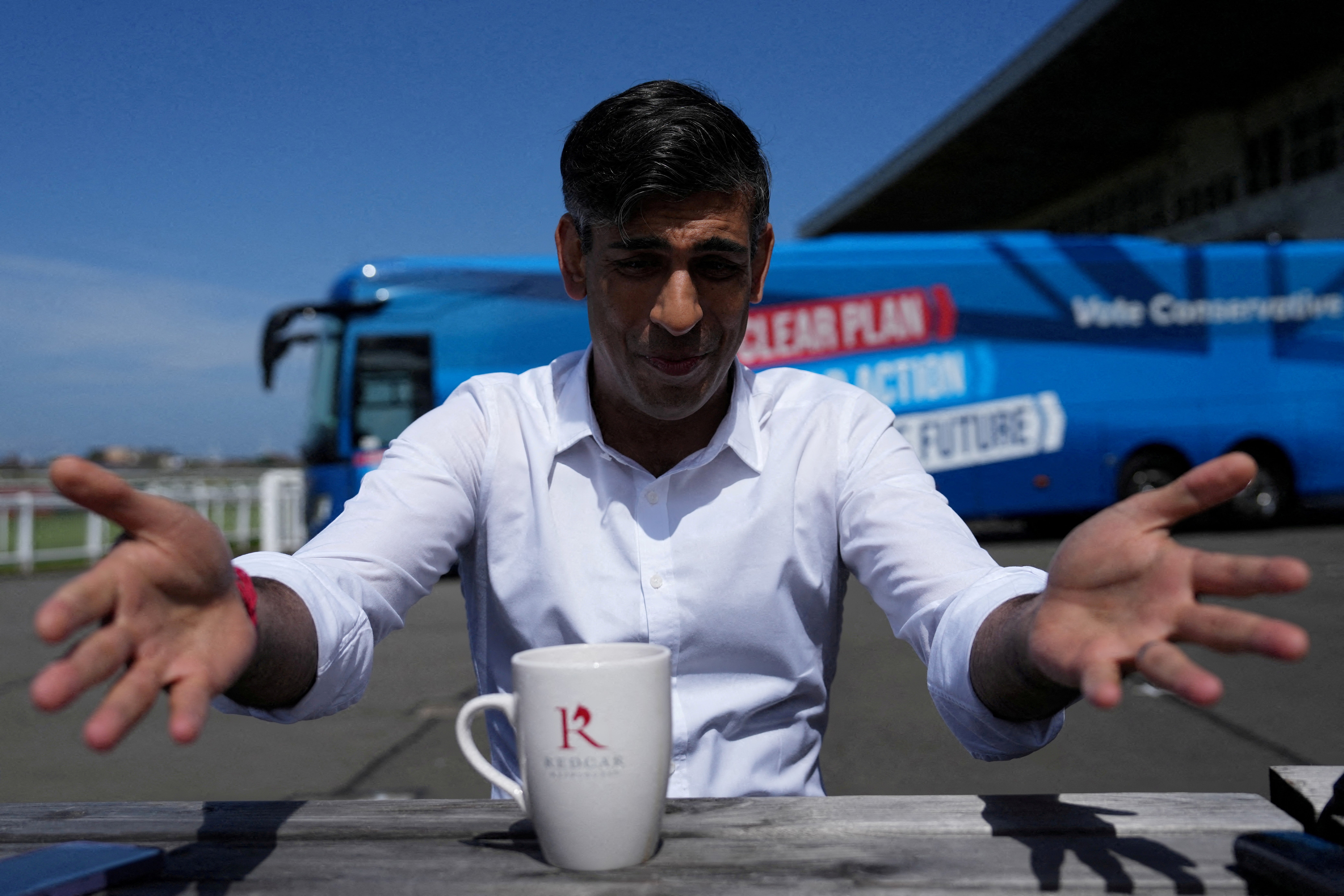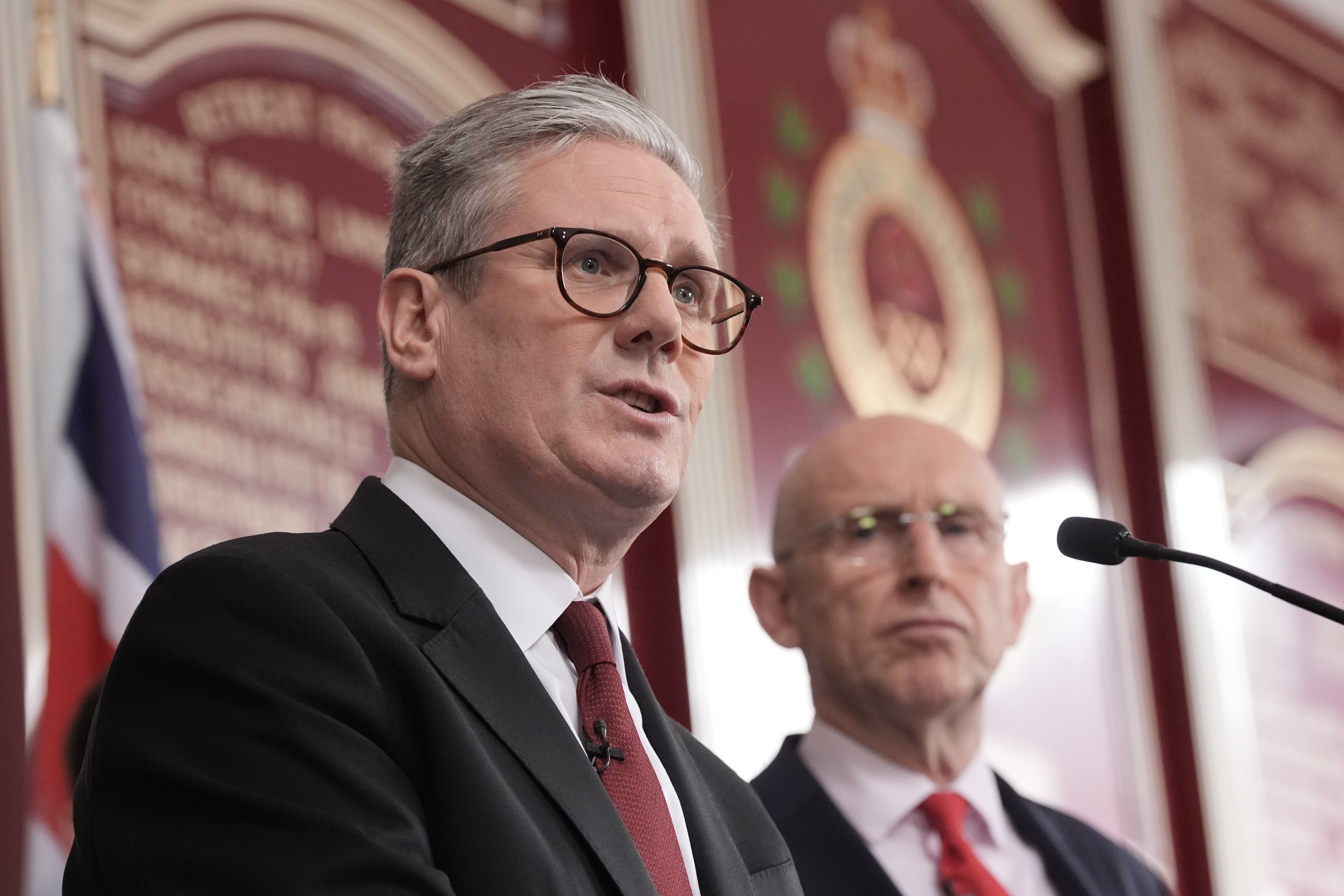New poll shows Tories heading for election wipeout – with Lib Dems becoming second biggest party
Redfield and Wilton’s poll of 10,000 voters suggests that the Conservatives will suffer ‘catastrophic’ losses
A new poll has indicated the Tories are on the cusp of suffering the biggest general election disaster in their history.
Redfield and Wilton’s survey of 10,000 voters published today (3 June) has the Conservatives at just 20 per cent, 26 points behind Labour. It is the second poll in three days predicting disaster for the government.
Director of research Philip van Scheltinga said: “After a week and a half of campaigning, the polls have changed, and the Conservatives are no longer facing a big loss on July 4. Instead, they are now facing a catastrophe, a complete wipeout.”
Click here for the latest coverage of election polls.
The findings have suggested a potential “Canada-style” collapse for the party based on when the Canadian Conservative Party went into the 1993 election as the government and only managed to hold on to two seats.
In a crushing blow for the Tories, Electoral Calculus predicts they would win a mere 24 seats if the poll was replicated in an election. Electoral Calculus is a website used by political analysts which bases its estimates on the effects of swings in support between parties but does not take local factors into account.
The Liberal Democrats would be the second party on 51 seats and Labour would have a majority of 426 with more than 500 seats. Even Rishi Sunak would lose his North Yorkshire seat to Labour in this scenario.
This follows the MRP poll over the weekend suggesting the Tories will win only 66 seats.
The Tories are emphasising that the predictions are based on polls – with the only real poll being the general election itself.

The worst election in the Tories’ history was in 1906 when they won 156 seats and Arthur Balfour became the only major party leader to lose his seat. But the Conservative problems are being compounded by a push on tactical voting, particularly by the Lib Dems.
The findings by the independent pollster are the second worst recorded for the Conservatives, beaten only by the 19 per cent when Liz Truss was prime minister at the height of the economic crisis triggered by her mini-Budget.
The survey suggests that everything tried by Mr Sunak in the election has failed to make an impact, including announcing he would reintroduce national service for school leavers and protect the state pension with a new “triple lock plus” guarantee.
Instead, the party has lost three points in the last week, while Labour has remained unchanged on 46 per cent.
Concerningly for the Tories, Reform were up one point to 14 per cent, even before Nigel Farage announced he would run as party leader.

Meanwhile, the Lib Dems are up one to 10 per cent and Greens are unchanged on 5 per cent.
Only 42 per cent of those who voted Conservative in 2019 say they would vote Conservative again – the joint-lowest percentage Redfield & Wilton has recorded since Mr Sunak became prime minister and just five points higher than the lowest percentage (37 per cent) ever recorded.
When asked about the issues, 58 per cent of voters cite the economy as among the three most important issues that would determine how they would vote in a general election, ahead of healthcare (52 per cent). Respondents also selected immigration (37 per cent), housing (25 per cent), and policing and crime (19 per cent).
When asked about the leaders, Mr Sunak gets a negative 17 per cent rating while Sir Keir Starmer has a plus 11 per cent rating. When asked who would make the better prime minister, Sir Keir on 46 per cent leads Mr Sunak on 26 per cent by 20 points.
The poll was conducted amongst an extra-large sample of 10,000 voters across Great Britain from Friday 31 May to Sunday 2 June, with additional intra-regional weightings.
Join our commenting forum
Join thought-provoking conversations, follow other Independent readers and see their replies
29Comments